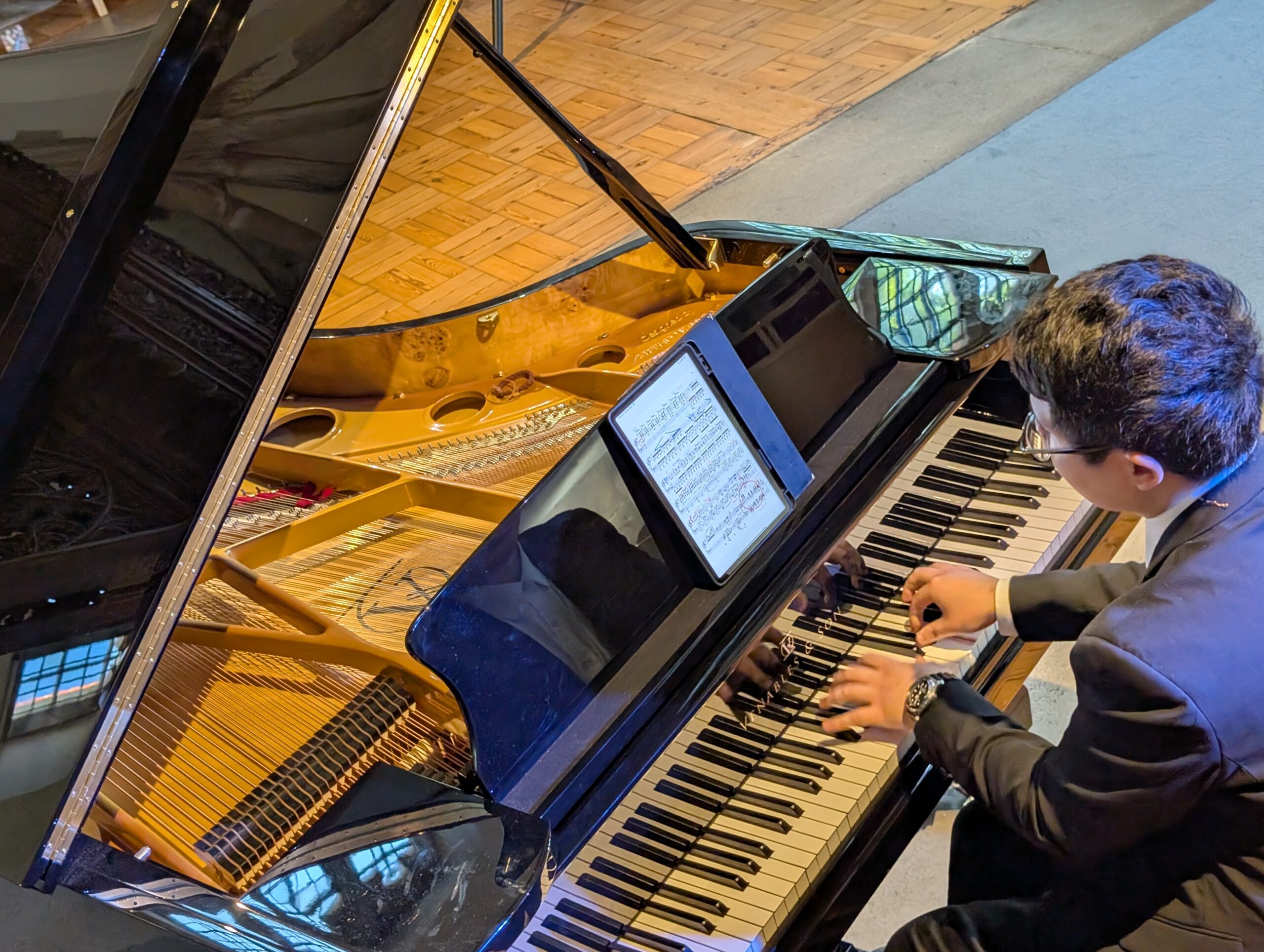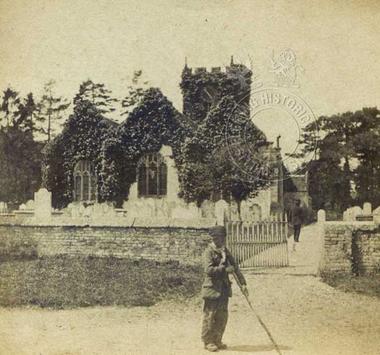St Michael’s choristers shine at the Beverley Minster RSCM Spring Course 2025
by Julia Martin (with quotations from the choristers themselves!)
We are incredibly proud of our talented choristers from St. Michael and All Angels, Bassett, Southampton, who recently attended the Royal School of Church Music’s Spring residential course at Beverley Minster. As I write, I can hear the sounds of their voices soaring over the rooftops, whilst the ten bells of Beverley Minster peal on a sunny Sunday morning as they practice for Choral Eucharist, their last service of the course.

Six excited young singers, their parents and siblings made the 250-mile journey to Beverley in Yorkshire for a four-day choral course, held this May half-term. For young church singers aged 8-17, the course offered a fantastic opportunity for them to hone their craft, learn new skills and sing in a historic location, known for its rich musical heritage.
“It’s really helped me to read music better and the choir leader has been teaching us new things—doing it all day every day has helped.”
Under the expert guidance of Hugh Morris, Director and CEO of the RSCM, the choristers immersed themselves in a varied musical programme. Hugh is a distinguished figure in British church music. His breadth of experience and passion for choral music were evident throughout the course, leaving a lasting impact on our young singers.
“It’s made me really want to carry on with Voice for Life and get medals to come back with next time!”
The children were given the enviable opportunity to sing three services at Beverley Minster as part of the course: Choral Evensong, Evening Prayer and Choral Eucharist. Some highlights of the repertoire are listed below. Notably, Hugh Morris himself composed and set some of the pieces, including his Magnificat in F minor and a special Gloria to accompany Fauré’s Messe Basse adding a personal touch to the music. The choristers also experienced repertoire from across the centuries.
“We learned about a different type of four-line stave in plainchant and different clefs. We’ve never done that before and I really enjoyed it.”
The course included a range of different workshops including conducting – learning more about the importance and role of the conductor – as well as composition, and advice on the specific techniques that make a brilliant chorister.
“It helped me realise that you don’t have to be loud to be good as a choir
because it’s better to get things right.
Singing in parts has been really hard but I’ve realised that focusing on the music and the notes is more important than the words at first, if you’re learning a new piece.”
Beverley Minster itself proved to be an unforgettable setting for the course. After Westminster Abbey (whose twin towers it is thought to have inspired), Beverley Minster is regarded as the most impressive ‘non-cathedral’ church in England.
As part of the programme, our young choristers were given a special tour of this magnificent building. One of England’s greatest Gothic churches, it is celebrated not only for the harmony of its musical history but also for its architecture. Queen Elizabeth I herself visited the Minster and granted the town a royal charter, establishing the Minster as a place of national significance.
Inside, the Minster is home to an extraordinary collection of medieval carvings: more than 70 depictions of musical instruments, both familiar and unfamiliar, such as bagpipes, flutes, tambourines, shawms (early oboes), trumpets and lutes.
Equally enchanting are the 68 misericords: small, intricately carved wooden seats in the choir stalls that could be folded up to provide a discreet perch for clergy during long services, which the children especially enjoyed.

“We learned what misericords are – you can pretend you’re standing when you’re tired!”
The misericords are filled with medieval humour, wit and sometimes subversive messages: fantastical beasts, animal musicians, scenes of domestic chaos, and even a fox preaching to geese—followed by the geese hanging the fox!
Others were fans of the hidden hole in the roof, with its ornate cover that can be removed to access the ten bells, which ring out every 15 minutes and for services, and are a living reminder of the minster’s musical heritage.


Pictures of roof and cover by Doc Brown
The Minster’s remarkable Snetzler organ, built in 1767, also played a central role in the course. Renowned for its bright, distinctive sound and exquisite craftsmanship, this instrument offered our choristers an authentic and inspiring experience of English church music at its best.


The sound of our choristers singing in such a magnificent setting brought a tear to more than one eye. Parents commented:
“They had a lovely time in Beverley—a wonderful time to bond as a group as well as lots of singing. Seeing them sing together in that breathtaking space, knowing the long history of music in the Minster, was incredibly moving. It’s an experience they’ll never forget.”
The children themselves had so much to say about their experience:
“I’ve learned so much more about our own choir members and we’ve become much closer. I know so much about them now and it makes me really happy!”

Our choristers have returned home from this course not only with new skills and confidence but also with unforgettable memories of making music in one of England’s most extraordinary churches. We are so grateful to Hugh Morris and the entire RSCM team for their dedication, expertise, and passion, which made this experience so special for every participant.
Please join us in celebrating our choristers’ wonderful achievement and in hoping that the inspiration and joy they found at Beverley Minster will continue to guide and inspire their musical journeys in the months and years ahead.
You can see our choristers in action on Beverley Minster’s YouTube Channel:
Friday 30th May: Choral Evensong
Saturday 31st May: Evening Prayer
Sunday 1st June: Choral Eucharist
REPERTOIRE LIST: BEVERLEY MINSTER SPRING COURSE
- David Ogden – I will bless and praise you (from RSCM Book of Psalm Songs)
- Come, Holy Spirit, fill the hearts of your people (from The Gift of this New Day, based on a traditional chant)
- Hugh Morris – Magnificat in F minor
- Timothy Noon – Magnificat (from Open Thou Our Lips)
- Taizé – O Lord, hear my prayer
- Lucy Walker – Lord’s Prayer (from Faith in the North – provided by Hugh Morris)
- Joanna Forbes L’Estrange – Chorister’s Prayer (Union Upper Voices with Descant, written for International Chorister Day 2021)
- David Halls – Preces and Responses (from Open Thou Our Lips)
- Herbert Sumsion – Magnificat and Nunc Dimittis in D
- Joanna Forbes L’Estrange – Let my prayer rise up (from Two-part Anthems)
- Gabriel Fauré – Messe Basse (+ Gloria from Hugh Morris)
- James Whitbourn – Alleluia Jubilate (written for the Choir Schools’ Association Conference)
- Simon Lindley – Ave Maria (Litany to Mary)
- Charles Villiers Stanford – Song of Wisdom
- Ralph Vaughan Williams – The Call (setting of George Herbert’s poem)
- David Thorne – St Thomas Mass (Upper Voices)
- Louis Halsey – Let all the world in every corner sing (Upper Voices – Beverley Course)


